
In this blog post, we'll delve into the differences between Revit and Vectorworks when it comes to 2D drafting, 3D modeling, rendering capabilities, and data management. You'll discover why Vectorworks reigns supreme in these categories and gain valuable insight into why so many architects choose Vectorworks as their go-to BIM software.
Drafting Workflows
Revit offers drafting tools for 2D documentation and detailing, allowing users to create floor plans, elevations, sections, and other traditional views. While Revit can generate 2D views from a BIM model, it lacks the organizational structure of classes, making it challenging to control individual bits of geometry for desired graphics.
On the contrary, Vectorworks provides all CAD drafting tools within the same design environment, offering superior graphics capabilities that cater to construction documentation and enabling you to communicate your vision in a legible and personalized style. Revit users often resort to using additional programs like Illustrator for post-production on drawings.
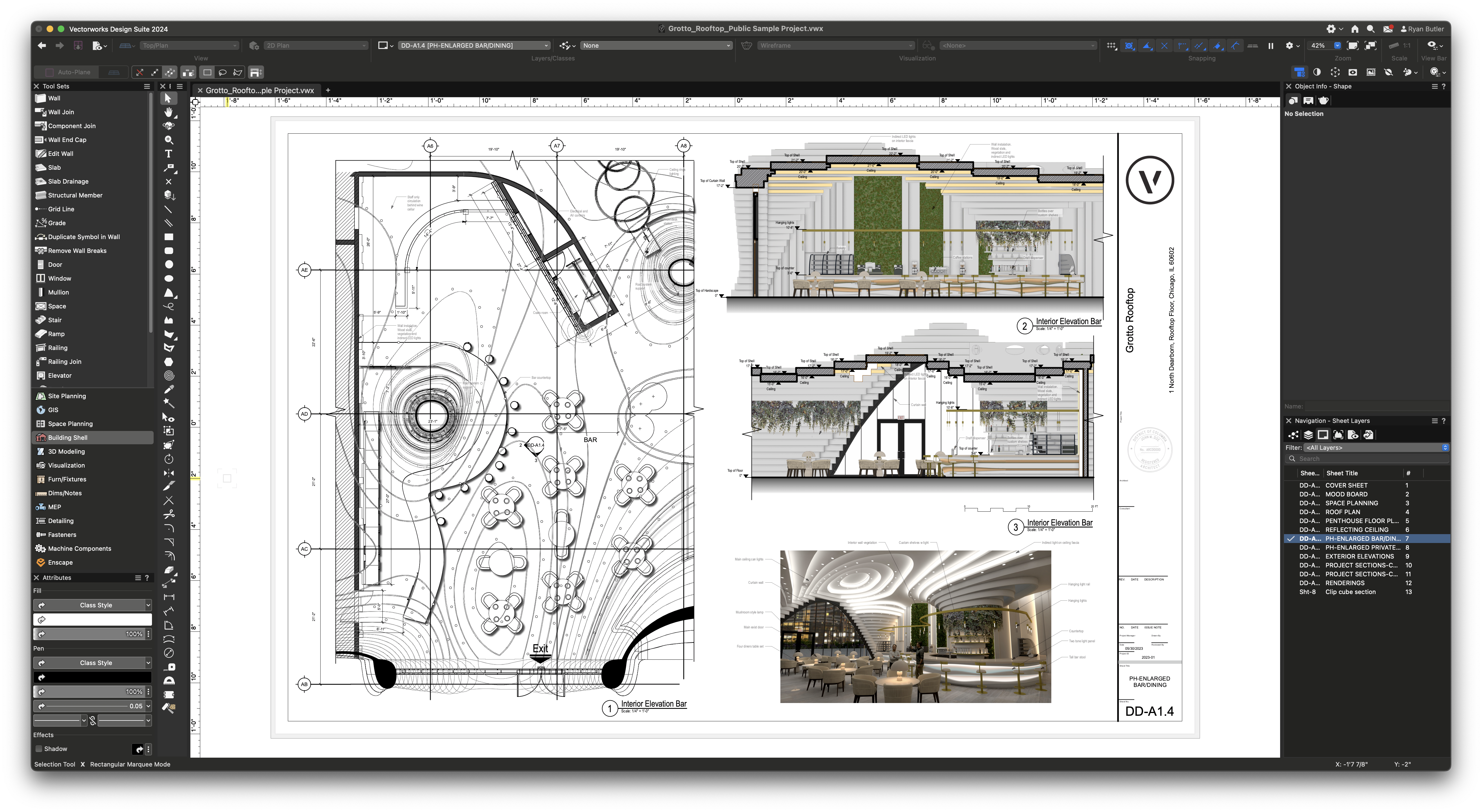
3D Modeling Workflows
When it comes to 3D modeling, Revit may shine in parametric building design, but it falls short in accommodating unconventional and custom design elements. Users often find themselves limited in creating organic or free-form designs, leading them to seek out other specialized 3D modeling software. Additionally, the complexity of customizing Families in Revit can be daunting, requiring advanced knowledge and skills.
Not only does Vectorworks support parametric building objects, but it also integrates cutting-edge technology seamlessly into your design environment for maximum flexibility. With robust tools like push/pull solid modeling, NURBS, and subdivision available at your fingertips, creating bespoke design elements that can be easily shared and reused becomes a breeze.
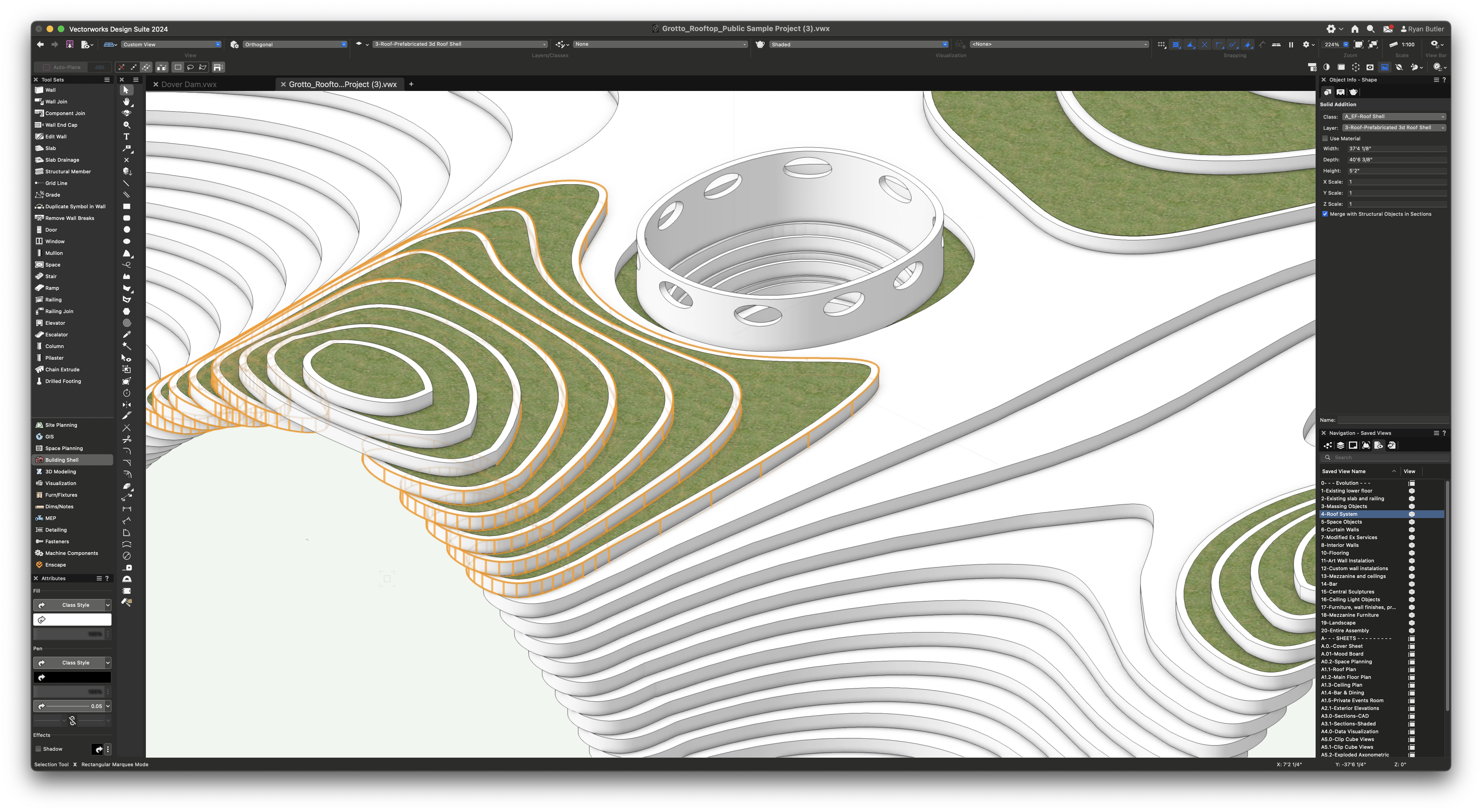
Rendering Capabilities
While Revit's rendering features serve various purposes, some may prefer specialized rendering software for more advanced and photorealistic outcomes. External rendering engines like Autodesk's Arnold, Enscape, or V-Ray can be integrated into Revit to elevate rendering quality and offer additional features at an extra cost.
Vectorworks, on the other hand, provides all your rendering essentials right out of the box at no additional expense. The software contains state-of-the-art, native real-time rendering in shaded mode, raytracing rendering —backed by Cinerender by Maxon —and the new Redshift GPU technology, a fast and interactive rendering mode. Additionally, you have the option to incorporate your favorite tools like Enscape, Lumion, and Twinmotion, enhancing your rendering capabilities further.
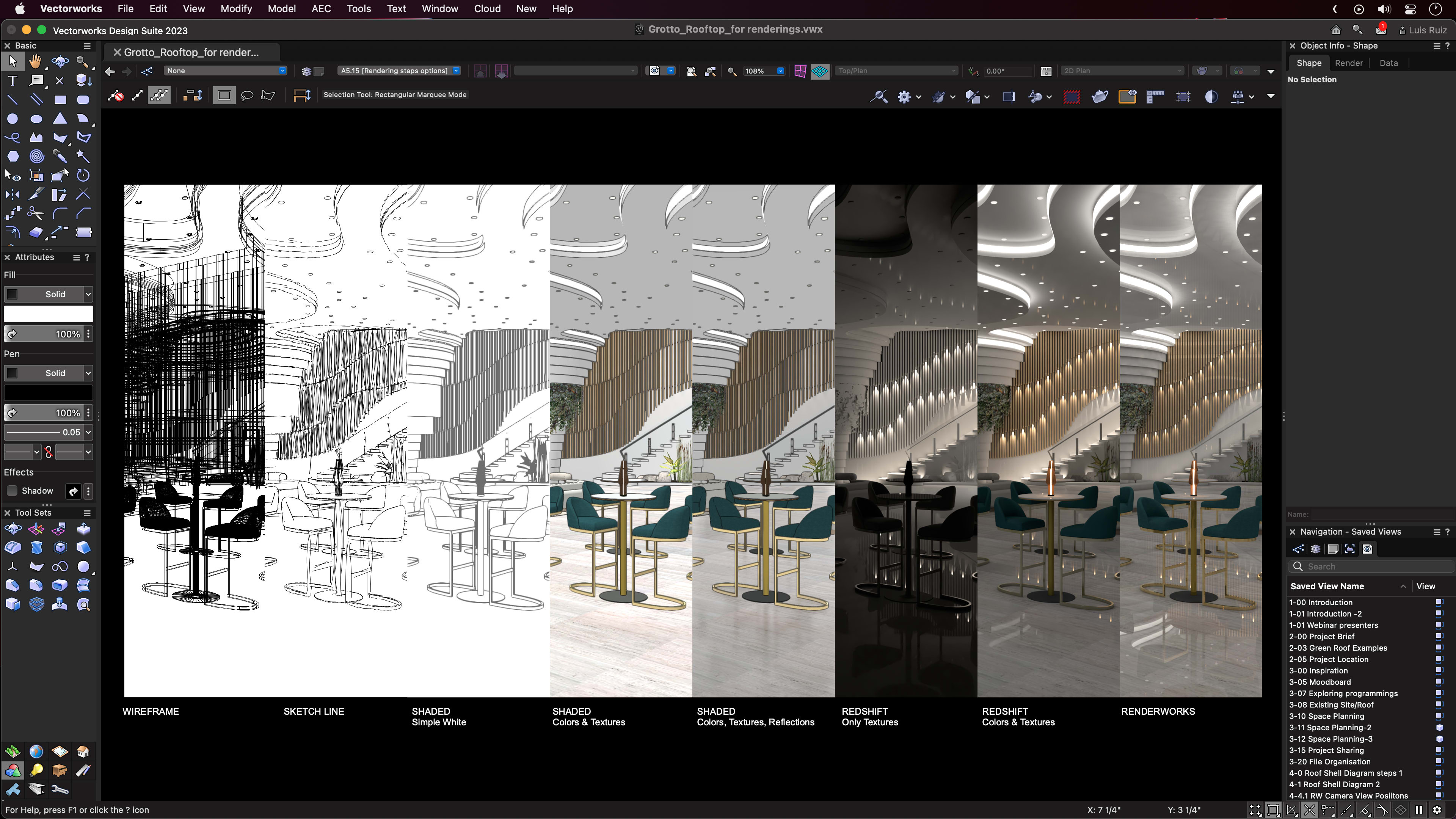
Data Management
Revit struggles when it comes to assigning and managing data, whereas Vectorworks has dynamic data assignment, which means you have the power to create flexible and fully customizable data sets that perfectly align with your project requirements.
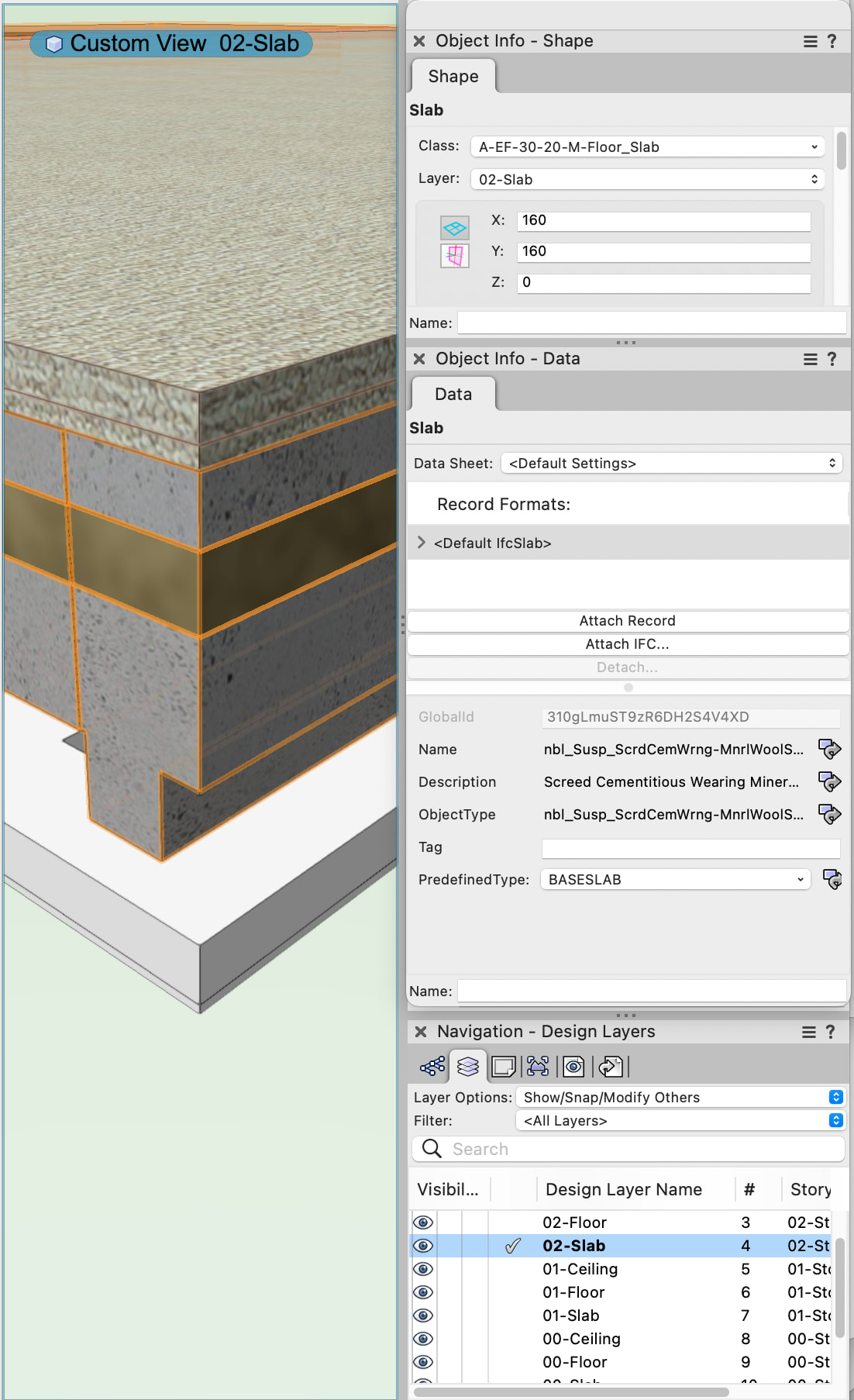
Not only does this enhance your ability to organize and manage project information efficiently, but it also opens a world of possibilities for data visualization. Imagine being able to transform complex data into visually engaging representations that tell a compelling story about your architectural designs.
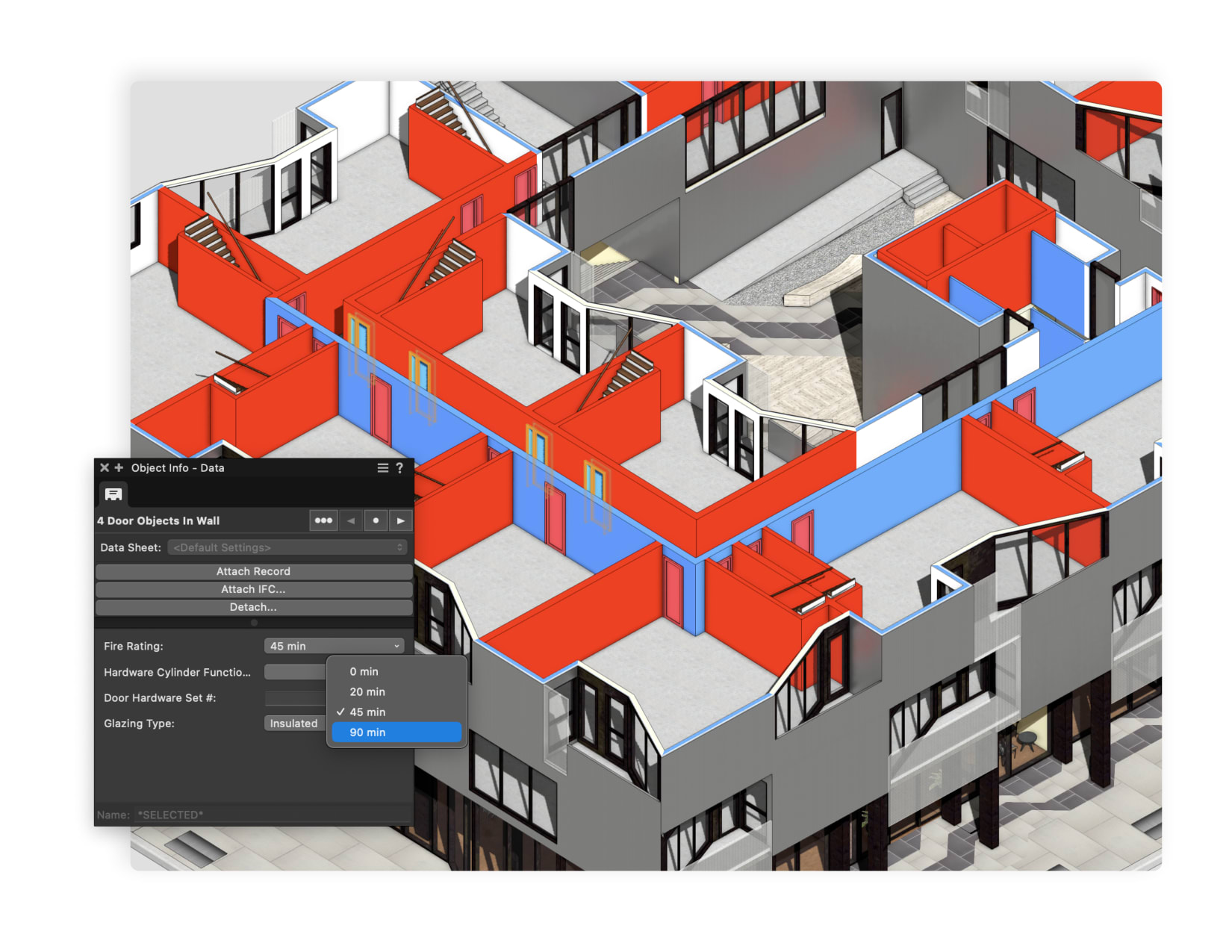
Additionally, Vectorworks offers powerful reporting capabilities that enable you to extract valuable insights and generate detailed reports and schedules with ease. With these tools at your disposal, you can streamline your workflow, improve decision-making processes, and elevate the overall quality of your architectural projects.

Discover the Possibilities
When it comes to comparing Revit and Vectorworks, Vectorworks emerges as the clear winner in providing superior tools and features for architects. From its advanced drafting workflows to robust 3D modeling capabilities, comprehensive rendering options, and dynamic data management, Vectorworks stands out as the preferred software for architectural design professionals.
Getting started with Vectorworks
If you want to elevate your design process, enhance visualization, and streamline project management, you can explore the possibilities with a free webinar about getting started with Vectorworks. The session will equip you with the skills and mindset to make the change that will forever enhance your design workflows.
FEATURED IMAGE: VILLANOVA ICÔNE | DESIGN BY HAMONIC+MASSON & ASSOCIÉ
Stay in the know with the latest insights
Subscribers receive news, customer stories, success and learning tips, event information, and other important announcements from Vectorworks.
By submitting this form, you agree that Vectorworks, Inc. and its authorized partners may contact you in regards to news, offers, and the use of our software, services, and platforms. Learn more about our privacy practices and your data on our privacy page.*